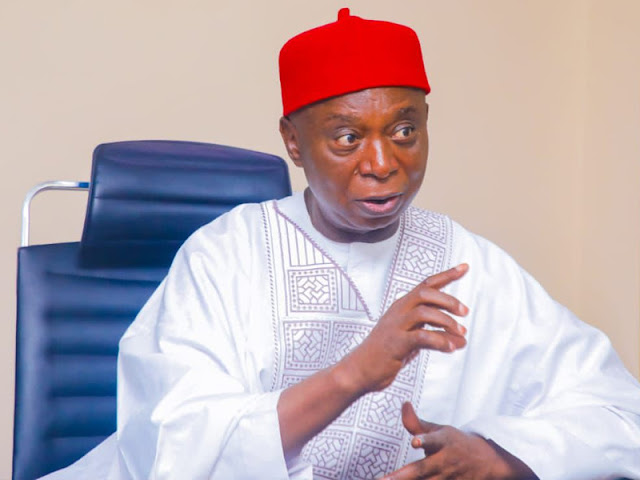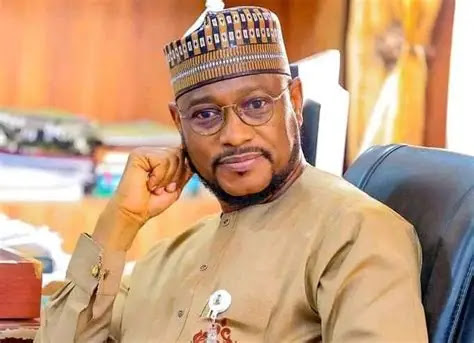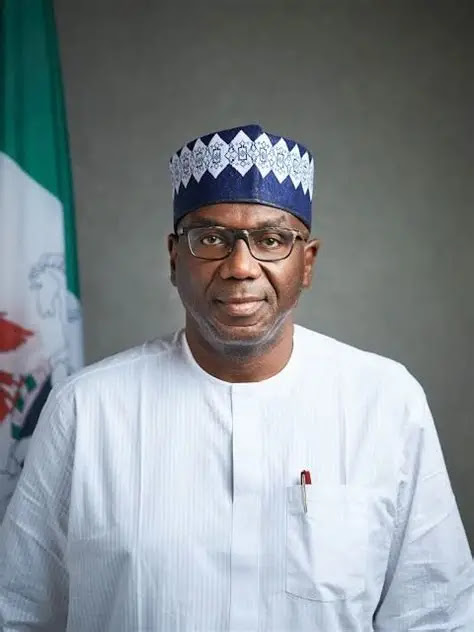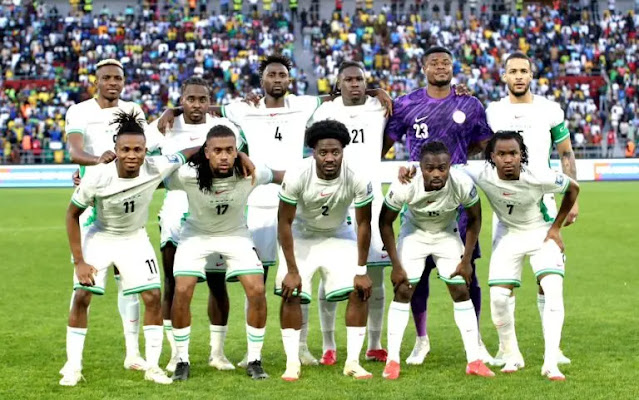Abuja, Nigeria – September 6, 2025 – Senator Ned Nwoko, representing Delta North Senatorial District, has made a shocking revelation in the Nigerian Senate, alleging that ethnic Igbos in Delta State have faced systemic ethnic cleansing and were coerced into denying their Igbo identity to avoid persecution. The senator’s claims, presented during a plenary session, have sparked intense debates about ethnic identity, regional politics, and the historical marginalization of certain groups in Nigeria’s complex socio-political landscape. These allegations have brought to the forefront long-standing tensions surrounding ethnic identity in Delta State and Nigeria at large, raising questions about unity, equity, and justice in a multi-ethnic nation.
The Allegations: A Tale of Ethnic Suppression
During a passionate address to the Senate, Senator Nwoko, a prominent figure known for his outspokenness on issues of justice and equity, claimed that communities in Delta State, particularly those of Igbo descent, have endured decades of ethnic cleansing. He alleged that these communities were systematically pressured to renounce their Igbo identity as a condition for survival, social acceptance, and access to opportunities in the state. According to Nwoko, this forced assimilation was not a mere cultural shift but a deliberate act of ethnic erasure, designed to suppress the Igbo presence in Delta State and undermine their socio-political influence.
The senator’s allegations point to a historical pattern of discrimination that he claims began in the post-Nigerian Civil War era. The Nigerian Civil War (1967–1970), also known as the Biafran War, was a conflict driven by ethnic and regional tensions, particularly between the Igbo-dominated Eastern Region and the federal government. The war left deep scars on Nigeria’s social fabric, with lingering mistrust and marginalization affecting Igbo communities across the country. Nwoko’s claims suggest that the aftermath of the war created an environment in Delta State where Igbo identity was stigmatized, and communities were coerced into adopting alternative ethnic identities to avoid discrimination, exclusion, or violence.
“Many of our people in Delta State, who are of Igbo origin, were forced to deny their heritage,” Nwoko stated. “They were told to identify as other ethnic groups or face ostracism, loss of opportunities, or worse. This is nothing short of ethnic cleansing—a deliberate attempt to erase our identity and history in the region.”
The senator’s remarks have ignited a firestorm of reactions, with some hailing his courage in addressing a sensitive issue, while others question the validity of his claims or fear that his statements could exacerbate ethnic tensions in an already polarized region. To fully understand the gravity of Nwoko’s allegations, it is essential to examine the historical, cultural, and political context of Delta State and the broader Nigerian federation.
Delta State: A Melting Pot of Ethnicities
Delta State, located in Nigeria’s South-South geopolitical zone, is a microcosm of the country’s ethnic diversity. The state is home to multiple ethnic groups, including the Urhobo, Itsekiri, Ijaw, Isoko, and Anioma (a subgroup often associated with Igbo ancestry). The Anioma people, primarily located in the Delta North Senatorial District, which Nwoko represents, are at the heart of his allegations. The term “Anioma” is an acronym derived from the names of the region’s major towns: Aniocha, Ndokwa, Ika, and Oshimili. These communities share linguistic, cultural, and historical ties with the Igbo people of Nigeria’s South-East, but their identity has often been a subject of debate.
The Anioma region’s proximity to Igbo-speaking states like Anambra and Imo, coupled with shared cultural practices such as language, traditional governance systems, and marriage customs, has led many to classify Anioma people as Igbo or Igbo-related. However, the complex history of Nigeria’s state creation and ethnic politics has created a unique situation in Delta State, where some Anioma communities identify as distinct from the broader Igbo ethnic group, while others embrace their Igbo heritage.
This duality of identity has been a source of tension in Delta State, particularly in the context of political representation and resource allocation. The state’s ethnic diversity has often led to competition for power and influence, with groups like the Urhobo, Itsekiri, and Ijaw asserting their distinct identities while navigating their coexistence with the Anioma. Senator Nwoko’s allegations suggest that this competition may have fueled efforts to suppress the Igbo identity of Anioma communities, forcing them to align with other ethnic groups or adopt a more ambiguous identity to avoid marginalization.
Historical Context: The Legacy of the Nigerian Civil War
To understand the senator’s claims, it is crucial to situate them within the historical context of the Nigerian Civil War and its aftermath. The war, fought between 1967 and 1970, was triggered by the secession of the Eastern Region, led by Igbo military officer Chukwuemeka Odumegwu Ojukwu, who declared the independent Republic of Biafra. The conflict resulted in immense loss of life, widespread displacement, and economic devastation, particularly for Igbo communities. After the war, the federal government’s policy of “No Victor, No Vanquished” aimed to promote reconciliation, but many Igbo people felt marginalized in the post-war era, facing economic and political exclusion.
In Delta State, which was part of the Mid-Western Region during the war, the dynamics were particularly complex. The region was initially invaded by Biafran forces, leading to tensions between Igbo and non-Igbo communities. After the war, some Igbo-speaking communities in the region faced suspicion and hostility, as they were perceived as having supported the Biafran cause. This historical backdrop may have contributed to the pressures Nwoko describes, where Igbo identity became a liability in certain social and political contexts.
The senator’s use of the term “ethnic cleansing” is particularly striking, as it evokes images of systematic and deliberate efforts to erase an ethnic group’s presence or identity. While the term is often associated with extreme violence and displacement, as seen in conflicts like those in the Balkans or Rwanda, Nwoko appears to be using it to describe a more subtle but equally damaging process of cultural and social erasure. This could include denying Igbo communities access to political power, economic opportunities, or cultural recognition unless they abandoned their ethnic identity.
Political Implications: Stirring the Hornet’s Nest
Senator Nwoko’s allegations come at a time when Nigeria is grappling with heightened ethnic and regional tensions. The country’s political landscape is often shaped by ethnic considerations, with power-sharing arrangements and resource allocation frequently tied to ethnic affiliations. In Delta State, these dynamics are particularly pronounced, as different ethnic groups vie for control of political offices, oil revenue, and development projects in a state that is a key player in Nigeria’s oil-rich Niger Delta region.
By raising the issue of ethnic cleansing, Nwoko has thrust the question of Anioma identity into the national spotlight, potentially reigniting debates about the creation of Anioma State, a long-standing demand of many in Delta North. The proposed Anioma State would carve out the Igbo-speaking areas of Delta State to form a new state, potentially aligning them more closely with the South-East geopolitical zone. Proponents of Anioma State argue that it would address the marginalization of the Anioma people and give them greater political and economic autonomy. However, opponents, particularly from other ethnic groups in Delta State, view the proposal as a threat to the state’s unity and fear it could diminish their influence.
Nwoko, a vocal advocate for Anioma State, has framed his allegations as part of a broader struggle for justice and recognition for his constituents. He argues that the forced denial of Igbo identity is not just a historical injustice but an ongoing issue that affects the socio-political rights of Anioma communities. By bringing this matter to the Senate, he is seeking to galvanize support for addressing these grievances, potentially through legislative measures or a renewed push for state creation.
However, the senator’s claims are not without controversy. Critics argue that his allegations risk inflaming ethnic tensions in Delta State, where relations between groups are already fragile. Some have questioned the evidence behind his claims, noting that the term “ethnic cleansing” is a serious accusation that requires robust documentation. Others suggest that Nwoko’s focus on Igbo identity could alienate non-Igbo communities in Delta State, potentially undermining his broader political objectives.
Sociocultural Dimensions: Identity and Belonging
Beyond the political implications, Nwoko’s allegations touch on deeper questions of identity and belonging in a multi-ethnic society. Nigeria’s 250-plus ethnic groups coexist in a delicate balance, with identity often serving as both a source of pride and a point of contention. For the Anioma people, the question of whether they are “Igbo” or a distinct ethnic group is not merely academic—it has real-world consequences for their social, economic, and political standing.
The pressure to deny Igbo identity, as alleged by Nwoko, reflects a broader phenomenon in Nigeria where ethnic affiliations can determine access to opportunities. In some cases, individuals or communities may choose to downplay their ethnic identity to avoid discrimination or to align with more politically dominant groups. This phenomenon is not unique to Delta State; similar dynamics have been observed in other parts of Nigeria, where minority groups navigate complex identity politics to secure their place in the national framework.
For the Anioma people, the question of identity is further complicated by their geographical and political separation from the Igbo heartland in the South-East. While many Anioma communities share linguistic and cultural ties with the Igbo, their inclusion in Delta State has shaped a distinct regional identity. Some Anioma individuals proudly identify as Igbo, while others emphasize their unique Anioma heritage, rejecting the Igbo label. This diversity of perspectives underscores the complexity of ethnic identity in Nigeria, where historical migrations, colonial boundaries, and post-independence politics have created fluid and sometimes contested identities.
Reactions and Responses: A Divided Discourse
The senator’s allegations have elicited a range of responses from political leaders, community groups, and ordinary citizens. Supporters of Nwoko, particularly from the Anioma region, have praised him for shedding light on a long-ignored issue. Community leaders in Delta North have echoed his sentiments, citing instances of discrimination and marginalization faced by Igbo-speaking communities. Some have called for a formal investigation into the historical and ongoing treatment of Anioma people, arguing that such an inquiry could pave the way for reparative measures.
Conversely, some political figures in Delta State have cautioned against the senator’s rhetoric, warning that it could deepen divisions in an already diverse state. Representatives of other ethnic groups, such as the Urhobo and Itsekiri, have emphasized the need for unity and dialogue, urging Nwoko to provide concrete evidence to substantiate his claims. They argue that inflammatory language, such as “ethnic cleansing,” could undermine efforts to foster peaceful coexistence in Delta State.
Nationally, Igbo socio-cultural organizations like Ohanaeze Ndigbo have seized on Nwoko’s allegations to renew calls for greater recognition and inclusion of Igbo communities across Nigeria. The group has long advocated for addressing the post-war marginalization of Igbos, including those in states outside the South-East, such as Delta and Rivers. Ohanaeze has expressed solidarity with Nwoko, describing his speech as a bold step toward confronting historical injustices.
On social media platforms like X, the issue has sparked heated debates, with users expressing a range of opinions. Some applaud Nwoko for his courage, while others accuse him of playing ethnic politics to advance his agenda. Posts on X reveal a polarized discourse, with hashtags like #AniomaIdentity and #DeltaUnity trending in the days following the senator’s speech. The online conversation reflects the broader societal tensions surrounding ethnicity, identity, and power in Nigeria.
The Path Forward: Addressing Historical Grievances
Senator Nwoko’s allegations raise critical questions about how Nigeria can address historical grievances while fostering unity in a diverse nation. The issue of ethnic identity in Delta State is not an isolated one; it reflects broader challenges of nation-building in a country with a complex history of ethnic and regional rivalries. To move forward, several steps could be considered:
Historical Inquiry and Documentation: A formal investigation into the claims of ethnic suppression in Delta State could provide clarity and evidence. Such an inquiry, conducted by an independent body, could document the experiences of Anioma communities and assess the extent to which they faced pressures to deny their Igbo identity.
Dialogue and Reconciliation: Inter-ethnic dialogue in Delta State could help address tensions and build understanding among communities. Forums that bring together leaders from the Anioma, Urhobo, Itsekiri, Ijaw, and other groups could foster mutual respect and cooperation.
Political Reforms: The push for Anioma State, while controversial, could be revisited as part of a broader conversation about federal restructuring. Creating new states or adjusting geopolitical boundaries has long been a contentious issue in Nigeria, but it could offer a pathway to addressing the marginalization of certain groups.
Cultural Recognition: Efforts to promote and preserve the cultural heritage of all ethnic groups in Delta State, including the Anioma, could help counter narratives of erasure. This could include initiatives to document and celebrate Anioma history, language, and traditions.
National Unity Initiatives: At the national level, policies that promote inclusivity and equity across ethnic groups could help address the root causes of ethnic tensions. This includes ensuring fair representation in political and economic spheres and addressing historical grievances from the Civil War era.
Conclusion: A Call for Justice and Unity
Senator Ned Nwoko’s allegations of ethnic cleansing in Delta State have brought a long-simmering issue into the national spotlight, forcing Nigeria to confront uncomfortable questions about identity, history, and justice. While his claims have sparked debate and division, they also present an opportunity for dialogue, reflection, and action. The experiences of the Anioma people, as articulated by Nwoko, highlight the challenges of navigating ethnic identity in a multi-ethnic nation like Nigeria, where historical wounds and contemporary politics intersect.
As Nigeria moves forward, the resolution of these issues will require a delicate balance of acknowledging past injustices, promoting inclusivity, and fostering unity. Senator Nwoko’s bold stand has opened the door to these conversations, and it is now up to Nigeria’s leaders, communities, and citizens to chart a path toward a more equitable and harmonious future.






